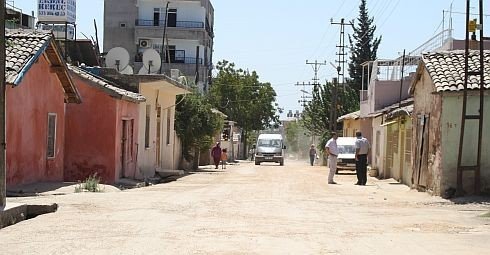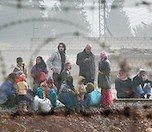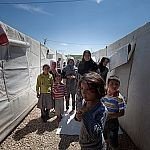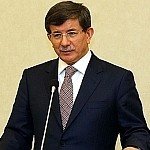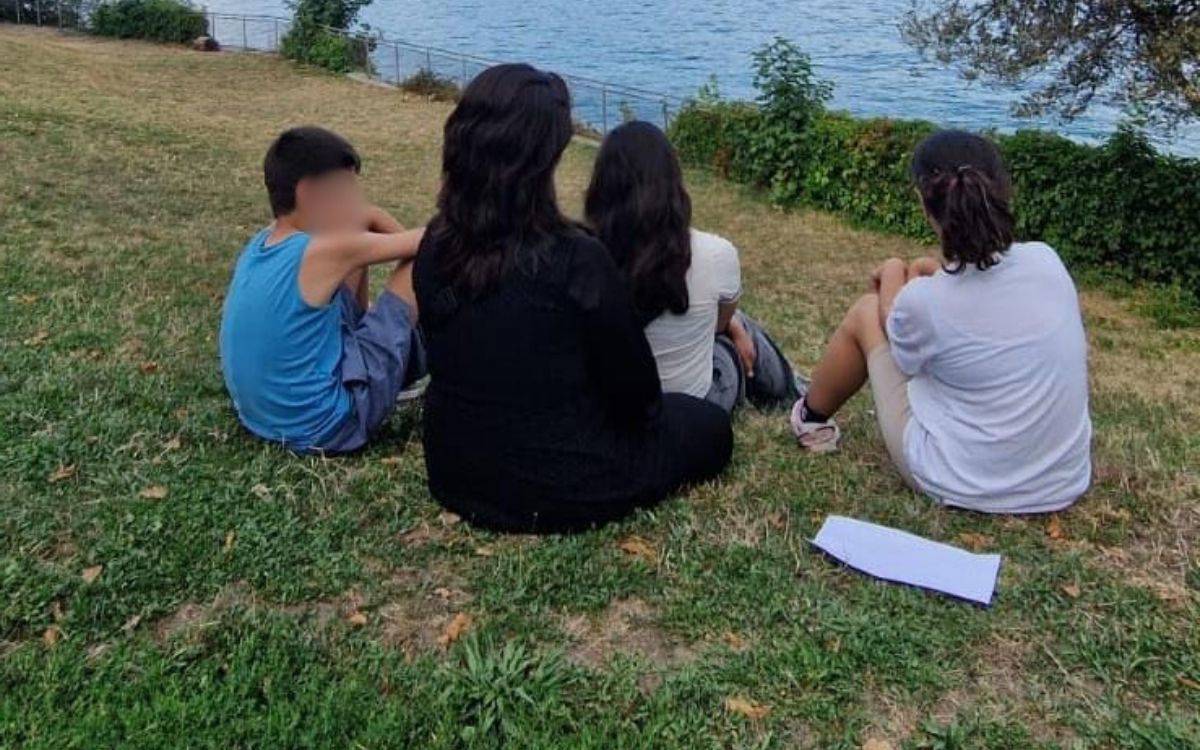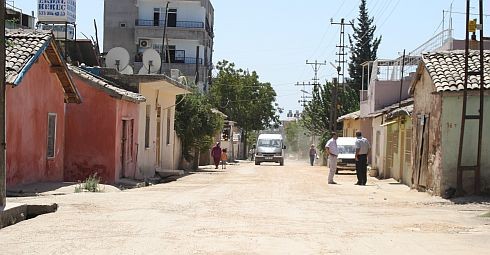
The clashes between regime opponents and government forces in Syria have resulted in the death of 100,000 people in the course of two years. While more than 2 million Syrians were forced to refuge to neighboring countries, Turkey officials hosts roughly 350,000 people.*
The Turkish government have set up over 20 tent establishments across 10 cities. One of these establishments is located in the southern province of Hatay. Sometimes depicted as “open prisons”, sometimes remembered with fires and other incidents, refugee camps still remain unknown to public. This is mostly because of the fact that media is not allowed to enter these camps.
Thousands of Syrians choose to move to apartments due to the lack of security and health conditions as well as rising tensions in the refugee camps.
We are tracing these Syrians in the streets of Hatay province. We arrived in Gündüz neighborhood in Kırıkhan district where approximately 5,000 Syrians are inhabiting. It is possible to run into a Syrian in any given corner of the neighborhood. It currently hosts more than 200 Syrian families. We drop by the first apartment in front of which some men are washing their car.
Arrested husband’s body sent home
The rooms are almost unfurnished with only some piece of clothing scattered all over the place. Families choose to keep their names anonymous and refuse to be photographed due to security reasons - not only for their own sake but also for their relatives in Syria.
_evrim_501.jpg) After these warning, we engage in a conversation in Arabic and Kurdish.
After these warning, we engage in a conversation in Arabic and Kurdish.
Hatice K, the householder, said her husband has been arrested. Later on, his dead body was sent to their apartment in Aleppo.
“I used to think that I would never leave the country no matter what,” K continued.
However, she had to depart after the husbands of both her sisters died in bombings. Moreover, they had to spend the last night in their apartment under bombardment. Then, they had to reach Orontes river on foot with her grandson (2) and 6 other people. When confronted to cross the river by boat, they had to leave all their belongings. Hatice K cited some of these items including medicine for his child who is facing war traumas and clothes she bought for her grandson.
"Heaven is where there are no bombs"
Fortunately, her neighbors in Syria have sent back the clothes for the grandson - they are currently ornamenting the walls of her apartment. But her son’s medicines are yet to be found. Inhabiting in Hatay for 3 months already, Hatice K and her family are feeling joyful again as they have recently engaged one of their sons to a woman who also fled from Syria.
“We have a wedding after the Eid,” Hatice K said. “Life goes on. Heaven is where there are no bombs. We are happy."
"We came crawling under barbed wires”
_490.jpg)
Our second stop is at Haykus family’s house. As we witness in every house, more than 15 people live here. Families choose to do co-habitation as it costs cheaper that way. This time, we interview Haykus (26) who fled from a village in Aleppo. They have walked for days to reach the border where they had to crawl under barbed wires to reach Turkey. Optimistic about the future, Haykus said: “We came here after all. We will be here from now on. Even though it gets better in Syria, I will stay here.”
Living with 3 children in a roofless house
_300.jpg)
Now we move to our third destination, a house with no roof. We are hosted by Zeynep (30), a mother of 3 children. We immediately notice 6-7 barrels of water in the courtyard.
“We use them to heat water for taking a bath,” Zeynep said. Her family - Hamide (2), Halil (4), Fatma (6) and Afrin - also fled to Turkey on foot.
She went on to say that they walked 10 hours straight to cross the border. “We brought nothing along with us. And we need everything here. I want to have job here.”
Responding to our inquiry on whether she wanted to return to Syria, she said without a hesitation: “No. We are done with there.”
"We couldn’t sleep because of bombing"
We are now at the house of Süleyman M, a former worker from Aleppo. After his apartment was bombarded in Syria, he drove to Turkey with a group of 14. Then they moved to a house as they didn’t find refugee camps secure enough. They occasionally work at a nearby farm by which they pay their bills. When asked, they say that they are not thinking of returning.
“We couldn’t sleep because of bombardments. At least, we are psychologically feeling well here,” Süleyman M said in the end. “I deleted there from my head.”
Husband shot by snipers
Finally, we are received by Gade H who moved to her house last month. Lost her husband by a sniper fire, Gade came to Turkey with her 5 children by means through Aleppo.
“When the demonstrations started, they detained my husband first. Then they started stalking him. We changed our apartment, but they found us again. Several time our house was searched by men carrying machine guns. We changed our apartment again, but they found us again. One day, my husband went to the market. A sniper shot my husband as I was watching him go,” she continued.
Shocked, she decided to leave the country to save her children. 600 other people were killed in the same zone by snipers - a place alternatively known as “death square”.
No electricity, no water
Gade H. lives with her 5 children in a house with neither electricity nor water. Her neighbors provide them water. They have torches for enlightenment. She still seemed to be happy with her condition.
“At least, we are in a safe place,” she said. “I hope Turkey and Syria will not become enemies. I hope our children will grow up here.”
I am asking about the ring on her finger. It was the first present from my husband, she said and cried. I remained silent. (EK/HK/BM)
* UNHCR statistics
* Click here to read the original article in Turkish.





